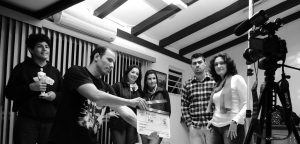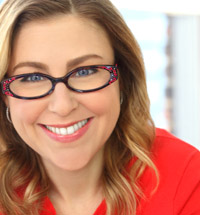Creating Your Film/TV Demo: It’s All About YOU!
Lately, the subject of an actor’s film and TV demo has been coming up over and over again. From actors who I work with here at Actors Connection to currently re-editing my own. It’s a tough subject as you can spend weeks trying to guess what the industry wants to see. But in this day and age of technology, it’s all about selling what you do efficiently and effectively. New York casting directors want to see film and TV demos. So what does an actor need in their demo and what should it say about you-the actor?
The first thing to remember is that you want to showcase your best work FIRST! Why? Well if an agent or casting director doesn’t like what they see they aren’t going to continue watching. Pretty simple right?
Second, your demo is all about you. This is your time to be selfish and to sell what you do in three minutes or less. It’s not about other actors and their work, it’s about YOU! These are your 3 minutes to shine and to spotlight your range and the types you play. And speaking of time, your demo should not be longer than 3 and a half minutes. You should be able to show everything that you do in that time using three to five scenes.
Third, you want to sell yourself as a leading player. To sell yourself as a one line actor is not what you want to show on your demo as a lead in. Save that for the middle of your demo to show that you’ve been on TV shows or films with stars and that we can trust you on set. For your film/TV demo reel, you also do not want to use commercials or anything where you are not speaking.
Fourth, you want to make sure that we recognize you right off the bat. From your headshot with contact information leading into your first scene, we need to identify you. If you are disguised or we aren’t sure who you are in the scene from the get go, that isn’t the scene to begin with. You never want to confuse your viewer.
Fifth, you want to use reel from actual projects. For your demo, I don’t recommend using taped monologues or class work. It’s just like headshots. It’s all about quality. Would you want to use a photograph for your acting business that was taken by your friend or mother in your backyard? No, you want the best professional headshot that you can get as it represents you and your brand. It’s what gets you in the door for auditions or meetings with agents. It’s the same with your demo. From showcasing it on your website to appearing on Actors Access, you want to make sure that it’s all about YOU and marketing yourself well to your next buyer.


